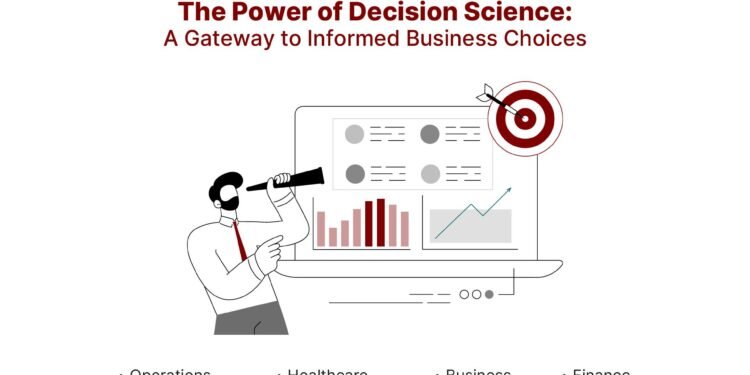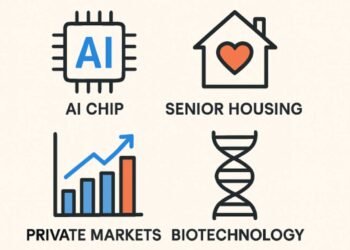Making the right choices is pivotal for success in this complex and ever-evolving business landscape. However, with uncertainties, market fluctuations, and large volumes of data, it is harder than ever to feel confident about your choices. This is where a decision science platform comes into play.
In this blog, we will explore the concept of decision science in detail – its definition, fundamentals, and practical application.
What is Decision Science?
Decision science is an interdisciplinary domain that combines theories and techniques to study and understand decision-making. Decision science analytics includes statistics, mathematics, economics, computer science, and psychology.
It uses data analysis and modeling to enhance decision-making by identifying patterns and reducing uncertainties & risks. In other words, it helps businesses make accurate predictions.
Practical Application of Decision Science
The application of decision science is versatile across several industries. From business and finance to healthcare and government, a decision science platform can revolutionize how one does business.
Here are some of the practical applications of a decision science platform:
- Operations management: businesses can enhance operational processes, inventory, and supply chain management, increasing productivity and reducing costs.
- Healthcare management: decision science plays a crucial role in healthcare management. Decision science platforms are often used in treatment planning, patient outcome predictions, resource allocation, and more.
- Finance: Expert prediction, risk analysis, and risk mitigation are areas where decision science analytics Naturally, it is a great tool to incorporate in the finance sector.
- Business Strategy: Decision science has proven to be extremely helpful in market analysis, business planning, data-driven decision-making, and gaining a competitive edge.
Enhancing Data Accessibility – Building the Foundation
High-quality, reliable data is the foundation of decision science. Therefore, a functional and efficient decision science platform requires access to such data.
As organizations and businesses accumulate large volumes of data, ensuring its currency, reliability, and relevance becomes pivotal. The growth of big data technologies has significantly enhanced the availability of varied data sets.
However, raw data can still be overwhelming to handle. Businesses need to transform raw data into actionable insights through interpretation. Some of the common challenges include inconsistent formats, data silos, and privacy concerns.
Thus, businesses must focus on creating strong data governance frameworks to guarantee the reliability and integrity of their data sources. They should also invest in tools to turn raw data into comprehensive and actionable insights.
Harnessing the Power of Data – a growing necessity
Data in its raw form must be improved to make effective business decisions. Decision-makers need actionable insights obtained through effective data integration. Innovations in data integration tools and technologies, such as machine learning algorithms and data visualization tools, allow organizations to extract valuable insights from intricate datasets. Adopting these technologies enables decision-makers to make better-informed decisions, streamline processes, and discover hidden opportunities within their data.
The Contribution of AI in Decision Science
Artificial Intelligence (AI) has significantly impacted decision science, transforming how organizations analyze and interpret data. Machine learning algorithms can process vast datasets, recognize patterns, and forecast precise outcomes.
Integrating AI into decision-making processes accelerates the timeline and improves the models’ ability to adapt to evolving business environments. The widespread presence of AI is revolutionizing decision science, introducing a new era of intelligent decision support systems.
The Impact of Decision Science Analytics on the Future of Business
The present business scenario and global commerce are ever-changing, and disruption is no longer rare in select isolated industries. It has become a norm in several sectors.
It is imperative to make timely decisions to keep up with the competition and progress in business. But how to do that? This is where data scientists and decision science specialists enter the game.
While data scientists ensure data quality and accuracy through various techniques, decision scientists translate, process, and derive meaningful insights from the data.
Decision science analytics helps businesses identify the latest trends, adapt to changing market needs, and make proactive choices. Organizations and their teams can make informed decisions backed by evidence instead of following their intuition.
The future of a successful business depends on its capacity to integrate its strategic planning and operational framework with a decision science platform seamlessly.
Decision Science Analytics and Customer Experience
Global digitalization and the introduction of artificial intelligence have transformed how customers look at a product or a business. Personalization is at the core of customer experience. Therefore, understanding customer behavior, preferences, pain points, and sentiments is critical.
Combining decision science and customer experience is a transformative synergy that can place a brand above its competitors.
Decision science enables organizations to analyze customer data, predict needs, and customize their offerings based on individual preferences. Leveraging decision science in customer relationship management helps businesses build customer loyalty, increase engagement, and improve overall financial performance.
A Roadmap to Get Started with a Decision Science Platform
While the way to transformation is bright, you still need a roadmap to navigate the realm of decision science analytics.
A good way to start this journey is by clearly defining the goal and analyzing how the decision science platform aligns with the business objectives. Once the vision is clear, businesses must build a robust team of cross-functional experts with in-depth knowledge in analytics, data science, and domain knowledge.
Another point of action is training and upskilling existing talents to ensure that professionals can seamlessly navigate the complexities of decision science.
The multifold benefits of decision science are undeniable. However, businesses should prepare for potential pitfalls. Too much dependence on algorithms without human intervention can lead to data bias, poor data security, and other risks.
Organizations must balance between automation and human initiative, regularly evaluate the fairness of their algorithms, and enforce strong cybersecurity protocols to protect sensitive data.
Conclusion
In conclusion, decision science is an invaluable asset in navigating the complexities of today’s business environment. By combining the power of data analysis, AI, and cross-functional expertise, organizations can make informed, strategic decisions that enhance operational efficiency, customer satisfaction, and financial stability.
At Mu Sigma, you can access a centralized platform to manage all your decision science and data analytics requirements. Leverage Mu Sigma’s expertise in data science, machine learning, and business process optimization to scale your business and stay ahead of your competitors with a decision science platform.












